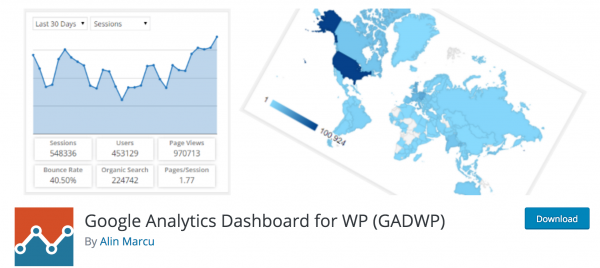Visitors won’t be able to find your e-commerce site if Google can’t find it — and Google won’t be able to find it unless you’ve done some work on search engine optimization (SEO). You’ll find thousands of plug-ins out there that promise life-changing WordPress SEO ninja tricks, but who has the time to wade through them all?
Check out these top five to see which is best for you.
(New to WordPress SEO? Check out our post The Beginner’s Guide to E-Commerce Keyword Research.)
1. WordPress SEO by Yoast

Why we love WordPress SEO by Yoast: It’s simple to use, and helps demystify SEO witchery by giving you clear, actionable tips on how to improve your WordPress site’s SEO score. It’s also been around for forever, which means that if you have any questions it’s really easy to find answers and tips on the WordPress.org forums.
How it works: Type your target keyword into the easy-to-use dialog box on your WordPress site’s composition page, and the plugin automatically checks to make sure your content is written with that keyword in mind. Is it in the headline, at least one subhead, in the first paragraph of text? You can write a custom meta-description here, as well.
As well as helping you optimize your content, Yoast SEO also automatically inserts the types of meta-tags and link elements that help your WordPress e-commerce site rank better in Google.
You’ll get tons of powerful options in the free version, or upgrade to the premium to get extra features like internal linking, multiple focus keywords, and social previews.
2. All in One SEO Pack

Whether you’re just getting into WordPress or are an advanced user, All in One SEO Pack is a great option for boosting your WordPress SEO game. It’s popular (with over 3 million active installs), in part because it’s so easy to use. Beginners like that it works right out of the box without having to mess with settings — and advanced users love the fine level of control the plugin gives them over their website’s SEO.
All in One SEO Pack allows you to create a custom title and description, and to set target keywords on every blog post and page. It automatically notifies Google and Bing of any changes you make to your WordPress site, which keeps your content fresh.
One big perk is that even the free version provides SEO integration for WordPress e-commerce sites like WooCommerce, with even more e-commerce support available in the Pro version.
(For a pros and cons comparison of Yoast SEO vs All in One SEO Pack, check out this blog post on WPBeginner.
3. Google Analyticator by SumoMe

It’s impossible to understand how your SEO efforts are working if you’re not tracking things like page views and bounce rates on Google Analytics. If adding Google Analytics code to your website has been on your to do list for forever, but you just haven’t gotten around to fiddling around with it (guilty!), check out Google Analyticator by SumoMe.
This plugin makes things easy. Just set up an account for your website on Google Analytics, install the plugin, hit a few buttons in the plugin settings, and you’re ready to go. When you head back to your WordPress dashboard, you’ll see a new graphical widget.
You can also configure the plugin to track things like download links and outbound links in order to get a better idea of your conversion rates.
Get it for free.
Learn more: Use This SEO Content Strategy to Boost Your Rankings
4. Google Analytics Dashboard for WordPress

The Google Analytics Dashboard for WordPress is another great simple plugin for tracking your Google Analytics statistics. It gives you real-time data on visitors and traffic sources, it can help you troubleshoot your WordPress site by giving you bounce rate statistics and 404 error statistics.
Along with all the basics, this plugin also gives you the ability to track stats based on custom parameters like author, publication year, categories, and tags. It can also break that information off into visual pie charts to give you a quick overview of traffic. This can be a great way to see how your WordPress site is performing in specific areas.
It’s free to use.
5. SEO Image Toolbox

This lightweight WordPress plugin eliminates the headache of manually optimizing your images. SEO Image Toolbox automatically generates and updates alt tags for images all across your website — which is a real timesaver if you haven’t been doing it from the beginning of your website. (Again, guilty!)
How it works: by updating all your alt tags to reflect your image title tags. So you may still need to put in some work if your titles are still things like “file-10292017.”
And it’s free!
What are your favorite WordPress SEO plugins? Let us know in the comments.

